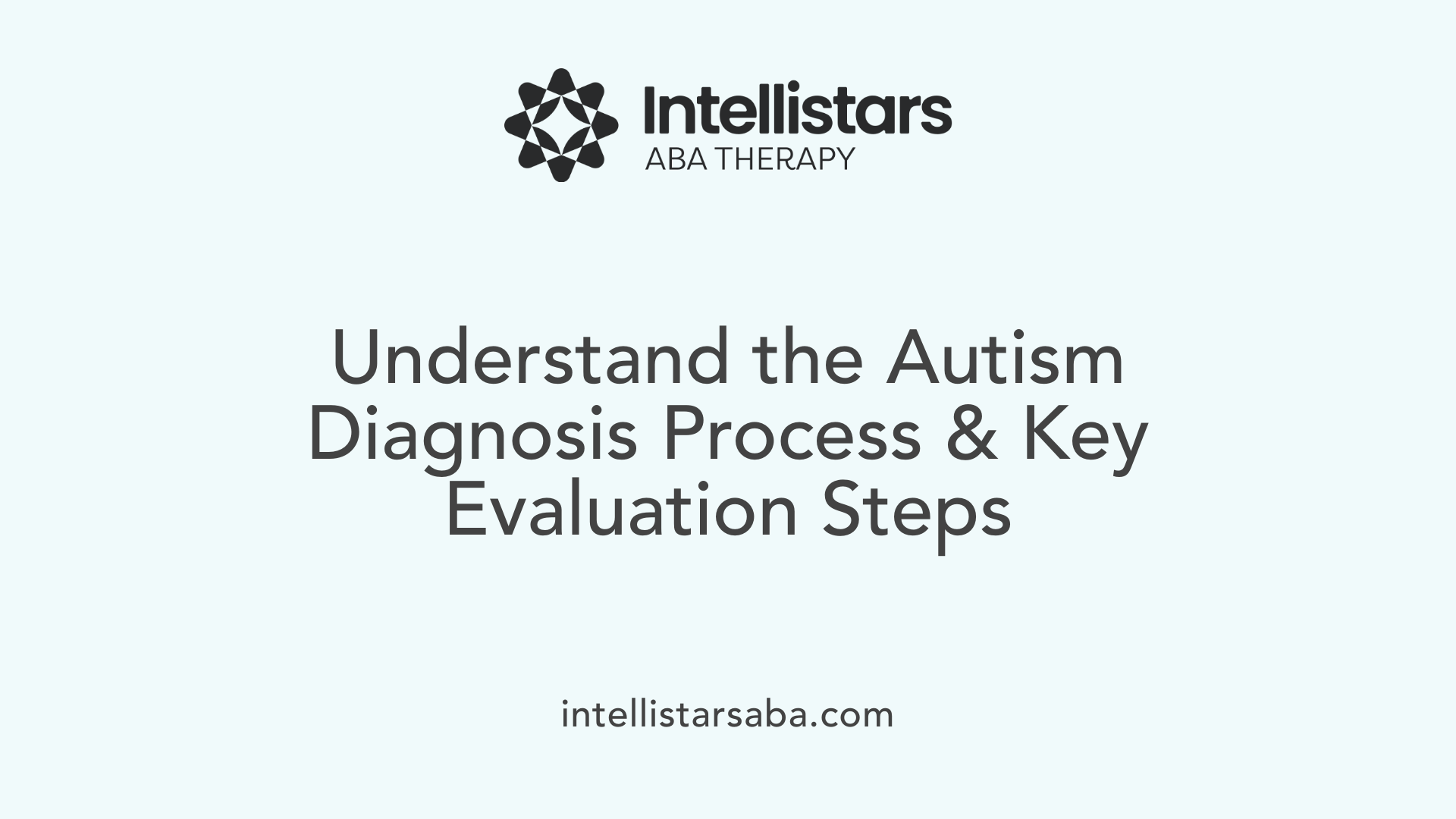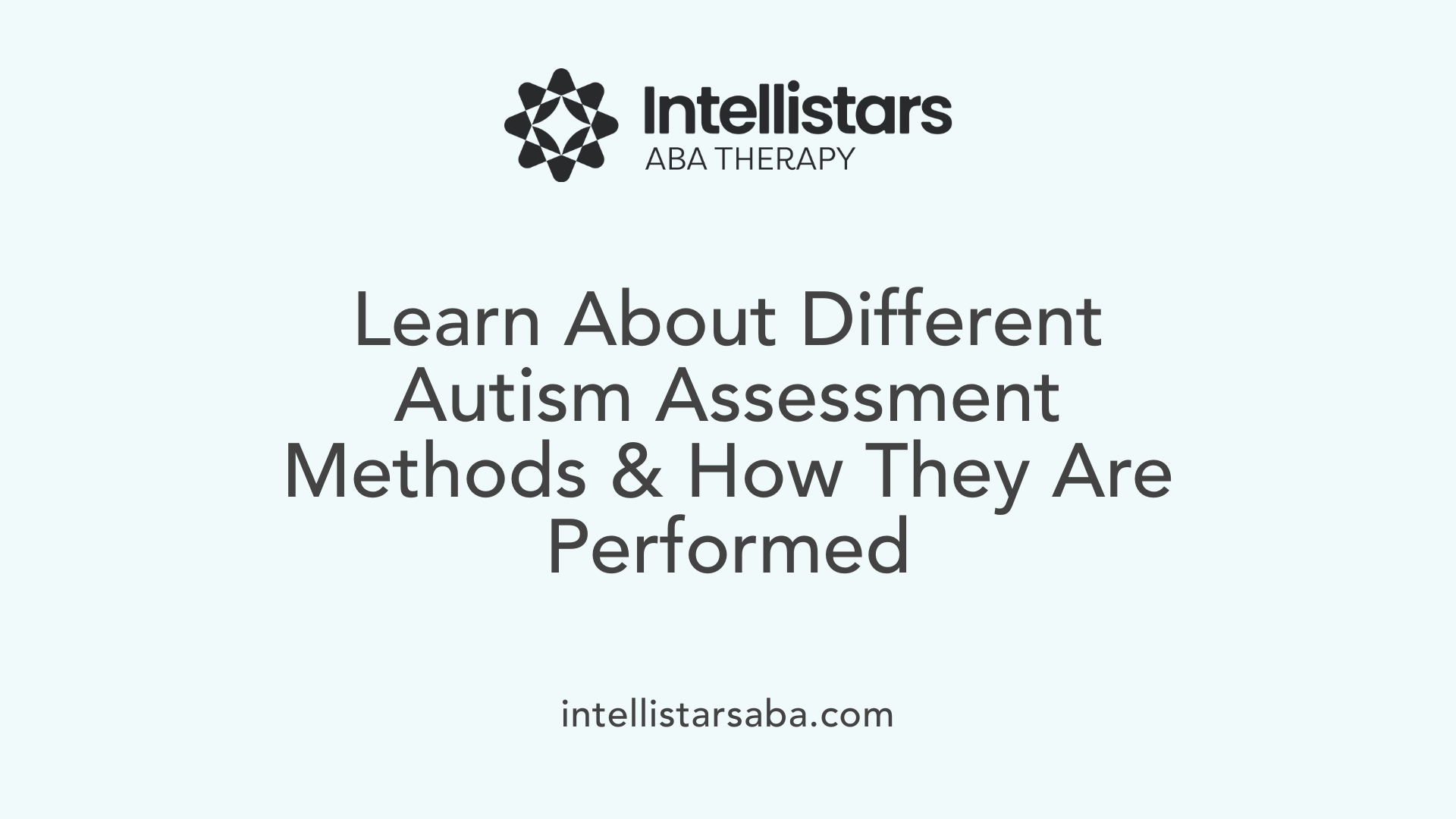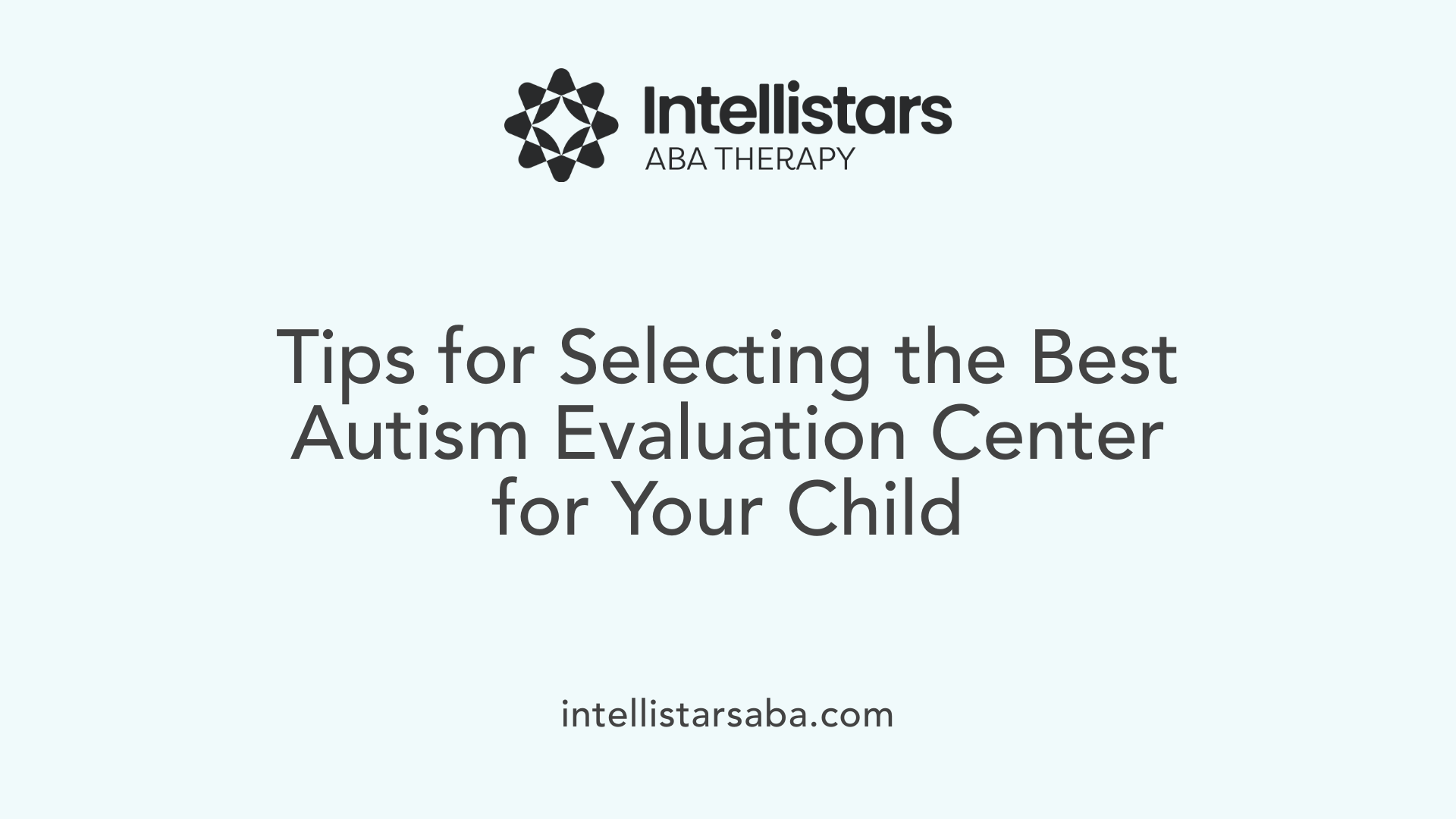Understanding Autism Evaluation and Why Location Matters
Accessing the right services for autism spectrum disorder (ASD) diagnosis can be crucial for timely intervention and support. This article guides you through the process of evaluating ASD, highlighting key evaluation centers, their procedures, and what families need to know about local options.
Overview of Autism Spectrum Disorder Evaluation and Diagnosis

What are the general steps and procedures involved in autism spectrum disorder evaluation and diagnosis?
The process of diagnosing autism spectrum disorder (ASD) is thorough and involves several important steps. It typically begins with an initial developmental history assessment, where healthcare providers gather detailed information about the child's growth, behaviors, and development from parents and caregivers. This helps identify any early red flags.
Following the history assessment, behavioral observations are conducted. Professionals observe the child's social interactions, communication skills, and behaviors during clinical visits to gain insights into typical or atypical patterns.
Standardized diagnostic tools are essential in confirming autism diagnoses. Commonly used assessments include the Autism Diagnostic Observation Schedule (ADOS-2) and the Autism Diagnostic Interview-Revised (ADI-R). These tools help provide a structured way to evaluate the child's behavior and communication skills.
During the evaluation, a multidisciplinary team of trained providers—such as developmental pediatricians, psychologists, speech-language pathologists, and occupational therapists—collaborate to ensure a comprehensive assessment. They also review relevant medical and educational records.
After gathering all data, the team compares findings against the criteria specified in the DSM-5. A diagnosis of ASD is made when there are persistent deficits in social communication coupled with restricted, repetitive behaviors.
Once diagnosed, families typically receive feedback and are connected with tailored intervention plans. These may include behavioral therapies, educational support, and medical management. Ongoing assessments are essential to monitor the child's progress and adjust services as needed.
The entire evaluation process aims for early detection and intervention, maximizing the child's developmental potential and providing ongoing support to families.
Types of autism assessment services available and how they are conducted

What types of autism assessment services are available, and how are they conducted?
Autism assessment services are designed to identify whether a child has autism spectrum disorder (ASD) and to understand the child's specific strengths and challenges. These services are usually provided by a team of professionals, including developmental pediatricians, psychologists, neurologists, speech-language pathologists, and other specialists.
Most assessments start with a comprehensive history-taking process. Parents and caregivers provide detailed information about the child’s developmental milestones, behavior patterns, and any concerns they have observed. This information helps form the foundation for further evaluation.
Following the history, a physical and neurological examination is conducted to rule out other medical issues and to look for signs associated with ASD. The core of the diagnosis relies on standardized tools and observational assessments tailored to the child's age and needs.
Key assessment tools include the Autism Diagnostic Observation Schedule, Second Edition (ADOS-2), which involves structured play and interaction to evaluate social communication skills and behaviors. The Autism Diagnostic Interview-Revised (ADI-R) is a comprehensive parent interview used to gather detailed developmental history and behaviors.
For young children, screening methods like the Modified Checklist for Autism in Toddlers (M-CHAT) are commonly used to identify children who need further evaluation. While screening tools help flag potential cases, an official diagnosis depends on in-depth assessments aligned with criteria from the DSM-5 or ICD-11.
In addition to behavioral observations and interviews, evaluators often conduct cognitive tests, speech and language assessments, sensory evaluations, and motor skill analyses. Collateral information from schools, therapists, and medical providers further enriches the understanding of the child's developmental profile.
The assessment process culminates with feedback and recommendations. This integrated approach ensures that diagnoses are accurate, which is essential for developing tailored intervention plans, including therapies and educational support.
Accessing autism evaluation services: providers, costs, and wait times
 Individuals seeking autism evaluations have several options, including clinics, hospitals, specialized autism centers, and community health programs. Notable centers such as the Children's Guild Foundation Autism Spectrum Disorder Center, Lighthouse Autism Center, and university-based clinics (like the University of Kansas Health System and Seattle Children’s) offer comprehensive diagnostic services.
Individuals seeking autism evaluations have several options, including clinics, hospitals, specialized autism centers, and community health programs. Notable centers such as the Children's Guild Foundation Autism Spectrum Disorder Center, Lighthouse Autism Center, and university-based clinics (like the University of Kansas Health System and Seattle Children’s) offer comprehensive diagnostic services.
Qualified professionals who conduct these assessments typically include licensed psychologists, developmental pediatricians, neurologists, psychiatrists, and specialized clinicians trained in autism spectrum disorders. These experts utilize a variety of diagnostic tools such as the ADOS-2, CARS-2, and clinical interviews.
The cost of autism evaluations can range from approximately $1,000 to $5,000, depending on the provider, assessment scope, and geographic location. Many private insurance plans and Medicaid provide partial or full coverage, but out-of-pocket expenses vary. Some clinics and hospitals offer sliding scale fees or low-cost assessments through state programs, nonprofits, and community agencies.
Factors influencing wait times and appointment scheduling include provider availability, demand, and required pre-authorization processes. While some centers can schedule evaluations within a few weeks, others may have longer waiting periods. It’s advisable for families to contact multiple providers directly to compare wait times, confirm insurance acceptance, and understand necessary referral or pre-authorization procedures.
When choosing a provider, verifying their credentials and ensuring they have experience with autism assessments is essential. This helps ensure that diagnosis and subsequent recommendations are accurate and tailored to the child's needs. Also, confirming the provider's participation with your insurance can help manage costs effectively.
In summary, evaluating autism involves careful consideration of provider credentials, costs, and wait times. By researching local options and verifying each provider's credentials and insurance coverage, families can navigate the process more efficiently and secure timely assessments for their children.
Educational resources and the role of specialized evaluation centers
 Understanding autism diagnosis and the importance of specialized assessment centers is crucial for early intervention and support. Various official health websites serve as reliable sources of information. For example, the American Academy of Child and Adolescent Psychiatry (AACAP), Autism Speaks, and the Autism Society offer detailed explanations of autism spectrum disorder (ASD), screening tools, and directories of qualified service providers.
Understanding autism diagnosis and the importance of specialized assessment centers is crucial for early intervention and support. Various official health websites serve as reliable sources of information. For example, the American Academy of Child and Adolescent Psychiatry (AACAP), Autism Speaks, and the Autism Society offer detailed explanations of autism spectrum disorder (ASD), screening tools, and directories of qualified service providers.
Local Autism Centers of Excellence and support groups further assist families by providing specialized evaluation services, educational materials, and community support networks. These centers often employ multidisciplinary teams of trained professionals including psychologists, speech-language pathologists, healthcare providers, and behavioral specialists, to thoroughly assess and diagnose children. The evaluation process typically involves comprehensive assessments such as standardized tests (like ADOS and CARS 2) and clinical interviews.
For diagnostic criteria, the DSM-5 remains the standard reference used by professionals. It guides the evaluation process and helps determine whether a child's behaviors meet the criteria for ASD. Many centers align their assessments with these guidelines to ensure accuracy.
National helplines and support networks, such as the Autism Response Team, connect families to available resources. These organizations facilitate access to early diagnosis, tailored intervention plans, and ongoing support services.
Early detection plays a vital role in improving outcomes. Recognizing the signs of autism early allows for the implementation of individualized intervention strategies, such as Applied Behavior Analysis (ABA), speech therapy, and other behavioral supports.
In summary, an array of online resources, expert guidelines, and local centers work together to promote early diagnosis and tailored interventions. They help families navigate the complex process of understanding autism, supporting their children through evaluation, diagnosis, and lifelong developmental support.
Choosing the right evaluation center: considerations and tips
 When looking for an autism evaluation center, it’s important to consider various factors to ensure your child receives accurate diagnosis and appropriate support.
When looking for an autism evaluation center, it’s important to consider various factors to ensure your child receives accurate diagnosis and appropriate support.
First, review the credentials and areas of expertise of the clinicians involved. Ideal centers have professionals such as licensed psychologists, developmental pediatricians, neurodevelopmental specialists, and behavioral health experts who have advanced training in autism and related conditions.
Location and accessibility are also crucial. Centers like the Children’s Guild Foundation Autism Spectrum Disorder Center at Oishei Children’s Outpatient Center and others listed in your area should be reachable comfortably for your family. Easy access can reduce stress and ensure regular follow-up.
Services offered are another consideration. Look for centers providing comprehensive assessments, including clinical history, physical, neurological, developmental tests, and standardized tools like ADOS and CARS. Some centers also offer post-diagnosis support, therapy recommendations, and ongoing follow-up or intervention programs.
Insurance coverage and costs can vary widely. Many reputable centers accept Medicaid, private insurance, and funding from health departments, which helps make evaluations more affordable. Always verify the billing policies beforehand.
Finally, consider waiting periods and how appointments are scheduled. Some clinics can offer quick turnaround times, while others might have longer waiting periods. It’s advisable to inquire about appointment availability early, especially if early diagnosis is a priority.
To help you get started, searching terms like "selecting autism evaluation centers near me" can provide localized options tailored to your needs. Combining thorough research with these considerations can lead to a supportive and effective evaluation experience for your child.
Navigating Your Local Autism Diagnostic Landscape
Finding the appropriate autism evaluation center is a critical step towards getting a comprehensive diagnosis and the support needed for optimal development. Families should consider provider credentials, available services, cost, and wait times. With a wide range of centers offering multidisciplinary evaluations—such as the Children’s Guild Foundation Autism Spectrum Disorder Center, UNM’s Autism Spectrum Evaluation Clinic, Lighthouse Autism Center, and others—families are encouraged to explore options within their local area. Early detection is vital, and these centers are equipped to provide thorough assessments and ongoing support tailored to each child's unique needs. Remember, resources are available at national and community levels to guide and assist families through this process, ensuring access to high-quality diagnostic services close to home.
References
- Autism Spectrum Disorder Center | Care & Treatment
- Autism Spectrum Evaluation Clinic (ASEC) - UNM Health
- Indianapolis Autism Center
- Autism Resources and Information
- Autism Diagnostic Evaluation Providers in Kentucky
- Diagnostic Evaluation - Autism Center - Seattle Children's Hospital
- Screening for Autism Spectrum Disorder - CDC
- Understanding The Diagnostic Evaluation Process
- Autism Evaluation Process | Children's Mercy






